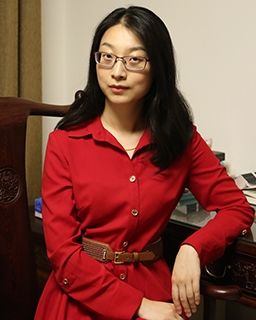Jiaying Lin
I always want to be a voice for disadvantaged and vulnerable people.
Trigger Warning: Domestic abuse.
It started in grade five, says Jiaying Lin. That was when she started being subjected to the beatings and verbal abuse of two of her family members.
It happened whenever they got drunk during banqueting - the practice of wining and dining with business associates for the purpose of building social networks.
“I did not feel it was wrong when I was in primary school. I just felt scared and cried loudly,” Jiaying says.
By the time she was in middle school, what was happening to her didn't feel acceptable and she reached out.
“I tried to find support from my grandparents and uncle, but they did not help me,” she says. “Rather, they told me to keep silent and not infuriate the perpetrators.”
She explains that traditionally in China, women and children are expected to be obedient to their husbands and fathers – the men in the family.
“I felt sad at that period of time. I felt ashamed to tell my classmates. So I used reading and writing to release myself.”
Jiaying turned to books like Sophie's World and the magazine Global People to find answers to why people commit domestic violence and to research morality. “These told me what are the 'correct' and 'normal' behaviours.”
Jiaying's experience stayed with her as she got older. She worked for a social services agency in Beijing for around 2 months, wanting to hear the stories of other child victims. There was a lack of immediate and appropriate social services in this area, and it was only in 2016 that China passed its first anti-domestic violence law.
“At that time, domestic violence was seen as a private thing and [something to be embarrassed about talking] with others,” she says.
The abuse Jiaying experienced occurred for around 12 years until she came to Australia in 2017, to study a Master of Social Research at ANU. She was drawn to ANU because of its high ranking School of Sociology and the Centre for Social Research and Methods.
Jiaying adds: “Another reason is, I wanted to experience some different culture and lifestyle. I think Canberra is a good choice, as it's quiet and beautiful.”
Coming to Australia, Jiaying's challenges didn't come to an end. She grappled with her advanced studies, and had difficulty with English. But she ultimately completed the coursework program and specialised in social research methods. She served as a research assistant to Professor Bruce Smyth, was a course representative, and had many valuable experiences at ANU. Jiaying is grateful to her 'brilliant' professors – including Professor Robert Ackland, Professor Zhongwei Zhao, and Dr Liz Allen – for helping to get her to where she is today, poised to embark on a PhD at the State University in New York.
“Dr Liz Allen shared her personal experience with me and encouraged me to pursue my dream,” says Jiaying. “I have received knowledge as well as energy from her courses.”
One of the things Dr Allen did for Jiaying was support her ambitions to study domestic violence in China.
“There is still a big gap in social policy and social service in domestic violence,” she says. “But I believe we should consider the political and cultural context in mainland China before formulating policies and offering services.”
“How do we define domestic violence in a patriarchy and patrilineal society? How can we understand the social expectations of a mother/wife/woman? How can we formulate policies to help children who are experiencing domestic violence or who witness domestic violence between their parents?
“I will try my best to answer these questions in the future – and want to transform my findings into social policies and services.”
Jiaying still strongly identifies as having been a victim of domestic violence, and is guided by her personal experience to make a difference.
“I always want to be a voice for disadvantaged and vulnerable people,” she says.

